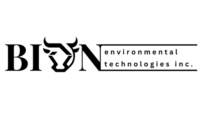Bion Environmental Technologies Inc., an advanced livestock waste treatment technology and premium sustainable beef company, announced that it has achieved key objectives in the optimization of its Ammonia Recovery System (ARS) at the company’s commercial-scale demonstration facility in Fair Oaks, Ind. Bion will now begin the final design process for full-scale systems.
Bion’s ARS produces premium fertilizer products from the volatile ammonia in livestock waste. Final economic and energy-efficiency models will be validated during the final design process, which should be completed in the first quarter of 2024. Bion will engage an engineering firm to prepare a third-party evaluation of the ARS. Operating results to date at Fair Oaks indicate ARS performance will exceed initial expectations for ammonia recovery and economics.
The ARS stabilizes the ammonia with CO2, also from the waste, producing precision low carbon and organic nitrogen fertilizers. Most of the nitrogen in livestock waste is lost as ammonia, both a waste of resources and a significant source of air and water pollution worldwide. Value-added nitrogen fertilizers will create new revenues and the economics needed to export excess nitrogen from impaired watersheds to where it is needed.
Several applications to OMRI (Organic Materials Review Institute) and CDFA (California Department of Food and Agriculture) are being prepared for listing and certification of new organic products. Bion received an OMRI-Listing in 2020 for its initial product. Bion will continue producing liquid and crystal fertilizers to support testing and life-cycle analysis, product trials and ongoing organic initiatives.
Bion’s patents apply to any organic waste stream where anaerobic digestion (AD) is used to produce biogas: any livestock waste; food and food processing waste; municipal wastewater; and others. Recent trends in Michigan and California indicate an evolving regulatory focus on ammonia, nitrates, and animal waste AD. Bion’s ARS technology offers a timely solution to this problem.
Bill O’Neill, Bion’s CEO, said, “Our operational progress keeps us on track to commercialize both the technology and our sustainable beef production model. Though delayed by supply chain disruptions, the demonstration at Fair Oaks has confirmed the system’s state-of-the-art capabilities. The wide applicability of the ARS and its environmental benefits cannot be overstated, as livestock-related nutrient issues grow globally.”
Source: Bion Environmental Technologies Inc.




Report Abusive Comment